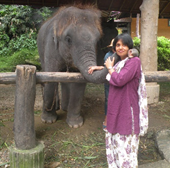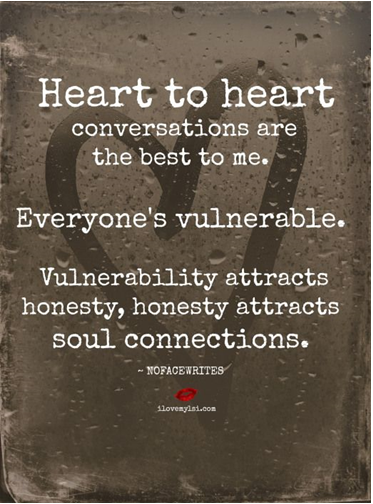It is always said that the “health is wealth”. But have you ever, thought what if that wealth turned out to be Brutus to your mental health Caesar. Yes!!!! You may be astonished on hearing this, but this how hypochondria or health anxiety feels like. The hypochondria or health anxiety is a mental condition which is categorized under obsessive compulsive disorder (OCD) yeah!!! You heard it right!!! Come on, OCD is not just washing hands it is lot more pain than repeated hand washing. The person who has hypochondria is often obsessed with intrusive thoughts of concerns about their health and constantly thinks about infections, heart attacks, organ failure without any rational cause.
We had interviewed a victim who has been bashed hardly by this monster hypochondria. The victim’s name was kept secret for his privacy. Victim words “That day, I remember it was May 8, 2018, I had to encounter with a person with mouth sore. I accidentally got physical touch on it, there started my evil nightmare. From next day, it started to feel like some infection has entered into my body. I started to repeatedly check for symptoms like fever, pulse rate, lesions etc., day by day I started doubting myself whether I’m missing something which is internally eating me badly. Then I started to take several tests to check infections such as HIV/AIDS, Herpes, Syphilis, Hepatitis etc., all turned out negative. Still, I had intrusive thoughts like what if the test missed something, what if the testing center is fake blah blah … again I started testing for time being after testing it feels good after that it starts again…. Finally, I got into severe depression, had repeated anxiety attacks with additionally my partner also broke with me. I reached to such an extent that I felt like why I’m I even living, I started to think of killing myself…my weight got reduced abruptly, I had very less to zero hunger, severe dizziness, no happiness finally one day by my God’s grace I was admitted for dizziness in a neurology care. In the hospital, they just took my brain MRI and CT, reports reviewed and I was found all fine. Then, the turning point came as blessings when the doctor found that… I’m not laughing, but continued to be depressed and anxious about my health. The doctor then… sent me for Psychological assessment where they found that I was having severe health anxiety or health OCD and the symptoms are all the consequences of the anxiety. Still I’m on anti-depressants and SSRIs now I learnt how to control my anxiety and health related thoughts…” It may sound like the person is exaggerating but in reality, he lost his admission in the prestigious National Institute of Technology (NIT), spent more than a 1 lakh for treatment and still he is relying on his pills. This makes sense that mental health and inclusive support from the loved ones is very crucial in determining the quality of life. Often, Yoga and holistic health practices can be of great help for such people/patients.
Symptoms: Symptoms of illness anxiety disorder involve preoccupation with the idea that you’re seriously ill, based on normal body sensations (such as a noisy stomach) or minor signs (such as a minor rash). Signs and symptoms may include:
- Being preoccupied with having or getting a serious disease or health condition
- Worrying that minor symptoms or body sensations mean you have a serious illness
- Being easily alarmed about your health status
- Finding little or no reassurance from doctor visits or negative test results
- Worrying excessively about a specific medical condition or your risk of developing a medical condition because it runs in your family
- Having so much distress about possible illnesses that it’s hard for you to function
- Repeatedly checking your body for signs of illness or disease
- Frequently making medical appointments for reassurance — or avoiding medical care for fear of being diagnosed with a serious illness
- Avoiding people, places or activities for fear of health risks
- Constantly talking about your health and possible illnesses
- Frequently searching the internet for causes of symptoms or possible illnesses
Treatment options:
The disorder can be very difficult to treat. This is due, in part, to the fact that people who have it refuse to believe their symptoms and distress are the result of mental or emotional rather than physical causes.
Treatment for somatic symptom disorder most often includes a combination of the following options:
- Supportive care: In most cases, the best course of action is for the person to stay in regular contact with a trusted health care provider. Within this doctor-patient relationship, the doctor can monitor the symptoms and stay alert to any changes that might signal a real medical illness. The doctor’s main approach is likely to focus on reassuring and supporting the person, and preventing unnecessary tests and treatments. It might be necessary, however, to treat some of the symptoms, such as severe pain.
- Medications: Antidepressant or anti-anxiety drugs are sometimes used if a person with somatic symptom disorder also has a mood disorder or anxiety disorder.
- Psychotherapy: Psychotherapy (a type of counselling), particularly cognitive therapy, can be helpful in changing the thinking pattern and behaviour that contribute to the symptoms. Therapy also can help the person learn better ways to deal with stress, and improve their social and work functioning. Unfortunately, most people with somatic symptom disorder deny there are any mental or emotional problems, making them fairly resistant to psychotherapy.
- Alternative medicines and holistic health practices: Ayurvedic health formulations and homeopathic potencies can also help to ease this disorder. Moreover, consuming organic foods, probiotics, avoiding oily, junk and canned foods can also help in proper functioning of gut thereby influencing the brain. “Gut-brain” connection has been well established and hence, gut can always be kept at best of its condition. Finally, Yoga and meditation as holistic health practices, can be of great help to unlearn the health anxiety and associated stress.

This blog has been written by Pavan who is an ICMR-Senior Research Fellow/PhD student working in the Yenepoya Research Centre. Pavan works on nanotechnology based targeted drug delivery for cancer therapeutics. Pawan can be reached at srpavan1997@gmail.com

This blog has been edited by Dr Bipasha Bose, Associate Professor, Stage II (Senior), Stem Cells and Regenerative Medicine Centre, Yenepoya (Deemed to be University), Mangalore-575018, Karnataka, India. Dr Bipasha Bose can be reached at Bipasha.bose@yenepoya.edu.in

